Archive for March 31, 2017
The Boiled Leather Audio Hour Episode 61!
March 31, 2017The Boiled Leather Children’s Hour
BLAH is for the children! In this episode, Sean and Stefan take a look at two issues uniquely relevant to the younger characters of A Song of Ice and Fire: bullying and education. Inspired by our recent re-reads of A Game of Thrones, our conversation touches on the pervasiveness of verbal and physical bullying, the degree to which it is or isn’t encouraged by adults, and how the ideas passed on to children by their parents and teachers through the official education system (for nobles, anyway) impact those receiving them. It’s a topic close to our hearts, and to our understanding of what the whole series is really about. Enjoy!
And remember, if you like what you hear, subscribe to our Patreon to hear more of it via our subscriber-exclusive Boiled Leather Audio Moment mini-podcast!
Additional links:
BLAH 09: Our episode on violence against children.
BLAH 11: Our episode on sexualized violence and violence against women (with Alyssa Rosenberg).
The latest BLAM mini-episode (click to subscribe).
Our Patreon page at patreon.com/boiledleatheraudiohour.
Our PayPal donation page (also accessible via boiledleather.com).
Goldfrapp: Silver Eye
March 30, 2017It takes Alison Goldfrapp more than a full verse into Silver Eye’s leadoff track “Anymore” before she utters a single word with more than one syllable: “You’re what I want. You’re what I need. Give me your love. Make me a freak.” Reductive? Considering her and collaborator Will Gregory—whose past lyrics would gussy up their earthy emotions and desires in hazy surrealism like, “Wolf lady sucks my brain” and, “Now take me dancing at the disco where you buy your Winnebago”—you might be tempted to think so. Prior to “Anymore,” Goldfrapp hid their most verbally explicit expression of lust (“Put your dirty angel face between my legs and knicker lace”) in an elaborate fantasy about a tryst with a traveling carny titled, appropriately enough, “Twist.”
But the direct approach suits this new album, the group’s first since 2013’s Tales of Us. Ever since the pair swapped the John Barry ambience of their debut album Felt Mountain for the electro-glam of its successor Black Cherry, they’ve staked their identity on being able to assume new identities at will. Wanna double down on that sexy “Spirit in the Sky” shimmer? There’s Supernature. Wanna go pastoral? Check out Seventh Tree. Wanna trade Gary Numan and Marc Bolan for the Pointer Sisters and circa-“Jump” Van Halen? Head for Head First. By contrast, Silver Eye is a synthesis—a combination of all the things the group has done well. “Become the one you know you are,” commands a key track, and they’re teaching by example. Who needs many syllables to express something so fundamental?
Our Kickstarter is fully funded!
March 30, 2017
Thanks to everyone who pitched in or spread the word. It means so much to us! Now our beautiful book just needs to find its way into your hands. Order today!
Bad at Sports Sunday Comics with Julia Gfrörer
March 30, 2017Max Morris: Your most recent project is co-editing Mirror Mirror II with Sean T. Collins, which is set to be released by 2D Cloud for their Spring 2017 collection. To my knowledge, this is the first anthology of comics work you’ve edited, but please let me know if I am incorrect. How was your experience of putting this book together?
Julia Gfrörer: It certainly deepened my empathy for people who regularly curate anthologies—it’s a lot of work, like herding cats. But it was also really a pleasure to work on, and gave me and Sean an opportunity to hone our vision of what matters most to us in art, writing, and comics. We’re honored to be able to work with so many incredible artists, many of whom are already well-known but have very different audiences, and get new eyes on their work.
Julia spoke to Max Morris at Bad at Sports about Mirror Mirror II, which you can purchase via our Kickstarter.
Interview: Sean T. Collins
March 30, 2017First off: wow! I haven’t had a book challenge me this much in a long time, in the sense that it tapped into some deep desires that I most often prefer to keep in the back rather than the forefront of my mind. Is this an effect that you were hoping to have on your readers?
Since I take that all as very high praise indeed, I suppose the answer is yes, it’s exactly the effect we were hoping to have. Julia and I share a lot of things—in addition to co-editing Mirror Mirror II, we live together and have a family as well—and one of them is the belief that when done right, dark and difficult work can push the reader in the direction of empathy. And our conviction is that it’s precisely by forcing the reader—and the artist, too—to confront parts of both the world and their own minds that they’d perhaps otherwise ignore or prefer to remain hidden that this kind of work makes real empathy possible. Instead of coming away reassured that you and the artist are in a sort of Good People Club where you agree that Behavior A is bad and Behavior B is good and aren’t we all enlightened to think so… I dunno, you can coast on that kind of work, you know what I mean? It lets you off the hook—again, meaning both the creator and the audience here. So in that sense we hope that the comics and art in Mirror Mirror II keep you on that hook, and I’m glad to hear it seems to have turned out that way for you.
I talked to Sarah Miller at Sequentialist about Mirror Mirror II, which you can order via our Kickstarter.
Interview: Sean T. Collins Talks Mirror Mirror II, 2D Cloud and their Kickstarter
March 30, 2017Rob: There are so many awesome horror comics. It’s one of my favorite genres, too. What makes comics such a great art form for horror?
Sean: That’s a tough question for me, because a lot of what people think of when they think of “horror comics” don’t move or frighten me at all. Mirror Mirror II is basically a who’s who of the artists who have scared us–Al Columbia, Uno Moralez, Renee French, Josh Simmons, and Julia too. Have you ever watched a horror movie, gotten to a really intensely scary part, and then been unable to resist rewinding and watching again? I definitely have, and I think the best horror comics make that compulsive instinct to face what frightens and disgusts us easy to give in to. You control the speed at which you pass through the images, so when something really sinks its claws into you, it’s entirely up to you how fast you pull those claws back out by turning the page.
I spoke to Rob McGonigal at Panel Patter about Mirror Mirror II, the horror comics and art anthology I co-edited with Julia Gfrörer. The kickstarter where you can order the book is right here.
They Are ‘Legion’: Tracking the Superhero Show’s Key Horror References
March 30, 2017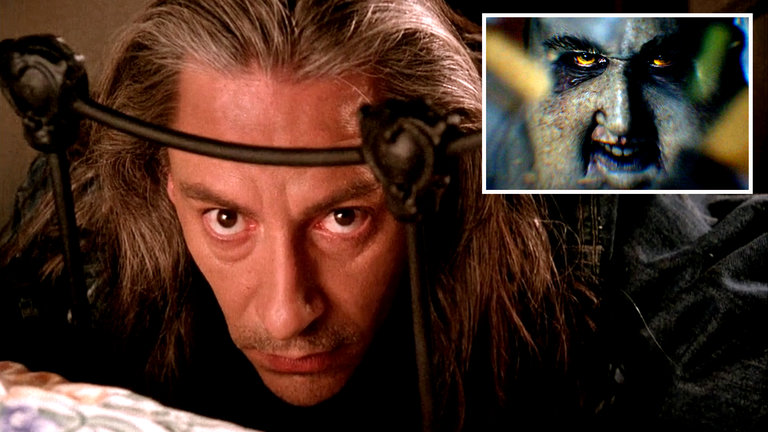
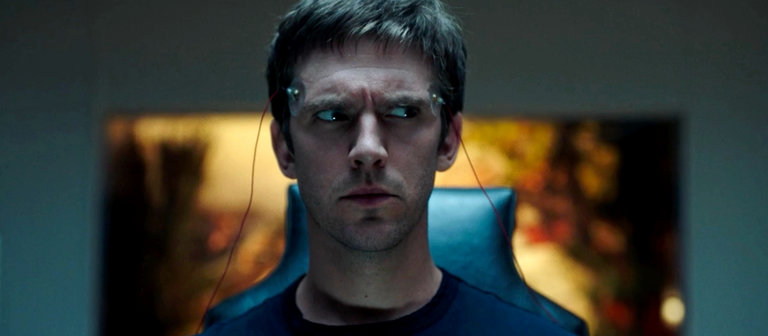

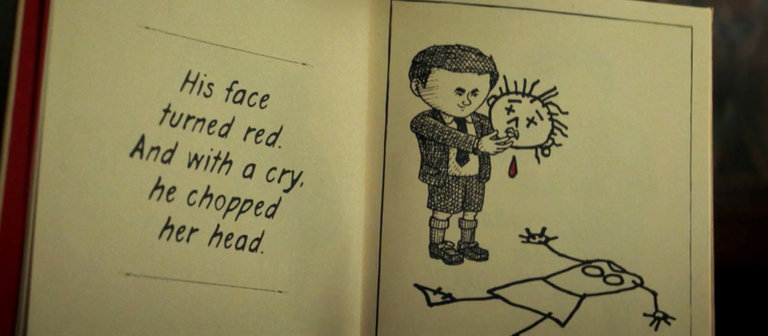
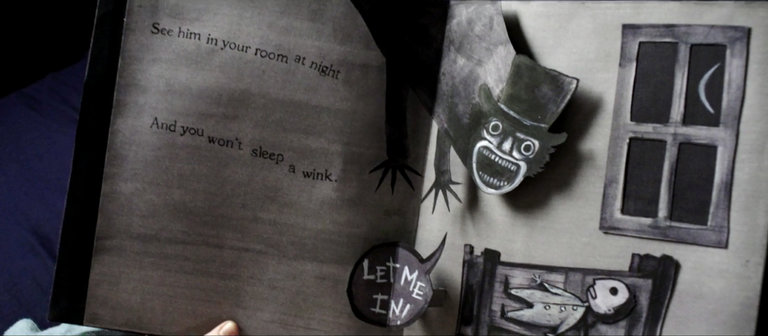
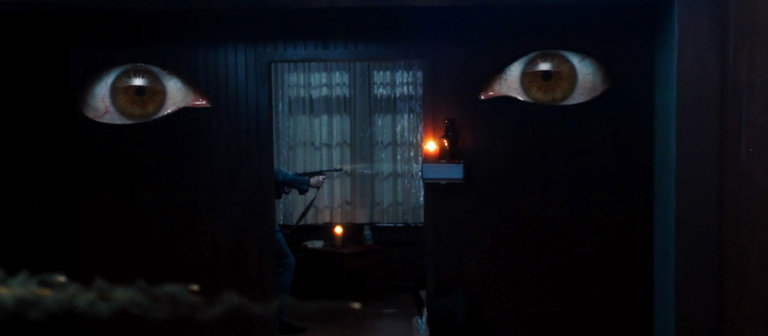
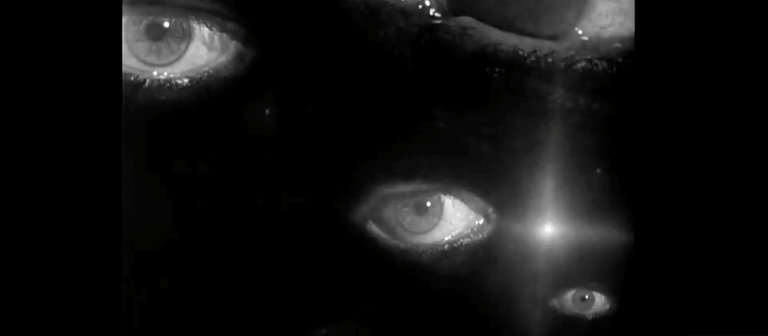
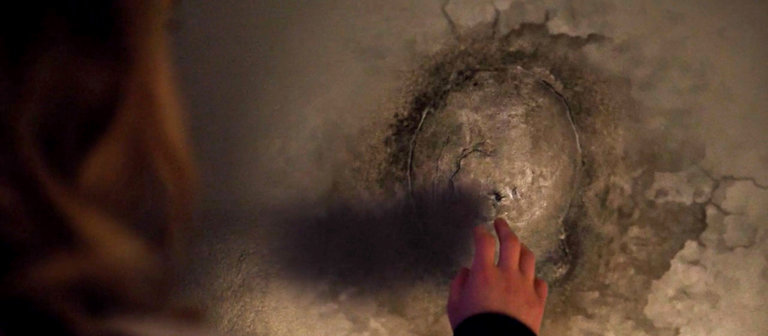
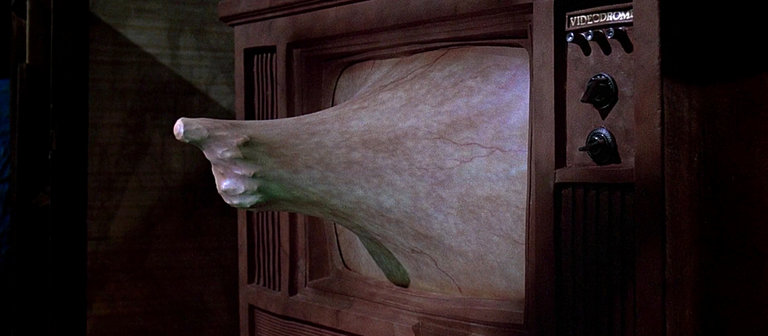
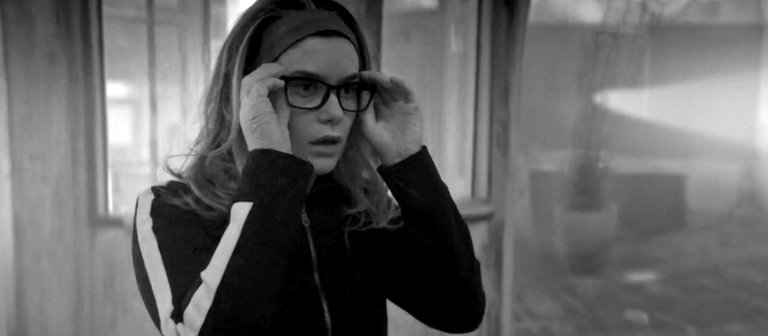

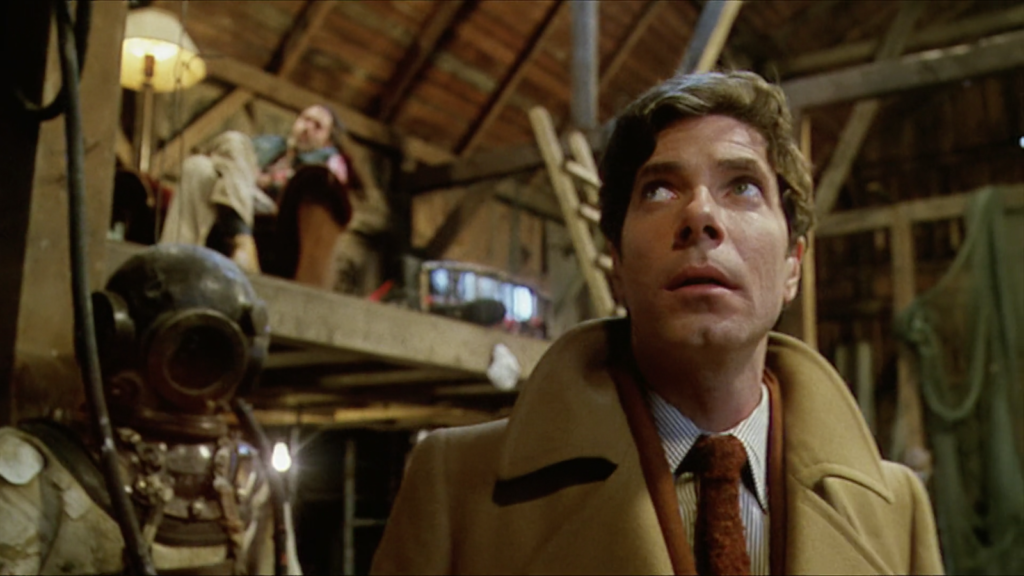
While Lynch gets the “Legion”-related headlines, another director named David seems to have left an even deeper mark. That would be David Cronenberg, who made a name for himself with a series of body-horror films that depicted the disturbing interplay between mind and matter, often with a conspiratorial backdrop of sinister secret agencies or killer corporations out to harness psychic power for their own ends.
“Legion” paints in shades of Cronenberg’s “Videodrome,” with its pulsating inanimate objects; “Shivers,” with its parasite imagery; “The Brood,” with its story of a powerful telepath under the care of a manipulative therapist (played by Oliver Reed, who may have lent both his name and his machismo to the guru figure Oliver Bird); and most especially “Scanners,” with its all-out war between rival psychic factions and a protagonist who’s telepathically tormented by the voices in his head. (“Scanners” also features a blink-and-you’ll-miss-it appearance from a very familiar-looking deep sea diver suit).
I wrote about David Cronenberg, David Lynch, and Legion’s other major horror influences for the New York Times. I have my beefs with Legion, but it’s porting its horror references into a whole different genre, as opposed to Stranger Things, which is just reheating them in the microwave and trying to pass of leftovers as a fresh-cooked dish.
“The Path” thoughts, Season Two, Episode 11: “Defiance”
March 29, 2017But all the business-y bullshit that everyone has to go through to get to any of these points — all the car rides and hallway lurkings and door knockings and arguments on the threshold — it’s just pure wasted space. As a practical matter it makes next to no sense in a world where phones exist. But more importantly, it posits a world in which human beings only interact with one each other for reasons of righteous indignation or naked duplicity. You go to someone’s house, you bully them or bullshit them, and you leave. It’s a lot like Eddie’s silly blindfolded needle-threading exercise — the focus is on getting everything where the story needs it to be rather than asking why it’s going there in the first place. For a show that’s ostensibly about the deep truths of human existence…well, I kinda want to pop into the writers’ room and tell them what’s going wrong.
I counted damn near a dozen Seinfeld-style “pop-ins” used to advance the plot of this week’s episode of The Path, which I reviewed for Decider. This is no way to write a show, man.
“The Americans” thoughts, Season Five, Episode Four: “What’s the Matter With Kansas?”
March 29, 2017I’m concerned about Renee. You know, Renee—Stan Beeman’s beautiful blonde gym buddy and new girlfriend, played by ex-Walking Dead lead Laurie Holden? The woman whose magnetism ate up a ton of Stan’s screentime through his descriptions of her to his buddy Philip Jennings and his partner Agent Aderholt alone, even before she made her on-screen debut? The woman who, during a double date with Stan and the Jennings, provides the kind of highly detailed backstory that we’ve learned from experience with our Soviet spies in this very episode (“What’s the Matter with Kansas?”) is just the sort of bubbe-meise secret agents concoct for their false identities? The woman who elicits weirdly stiff smiles from Philip and Elizabeth, implying that they sense something is off, but without the show ever confirming that implication by having the Jennings say something like “Wow, that was weird, wasn’t it?” during the car ride home or whatever? Yeah, that Renee. The beautiful thing about all this is that it all works no matter what pans out. Maybe we’re right to be suspicious and this person is up to no good—KGB, CIA, or some other alphabet agency seeking to compromise one of the FBI’s best and brightest. Or maybe our years-long immersion into the lives and lies of Philip, Elizabeth, Stan, Oleg et al have us jumping at shadows. Either way, you couldn’t ask for a finer demonstration of The Americans’ power to generate paranoia.
I reviewed this week’s oddly worrying episode of The Americans for the New York Observer.
“Billions” thoughts, Season Two, Episode Six: “Indian Four”
March 29, 2017Isn’t it nice to have a show that can legitimately outsmart you—not just bury some easter-egg clues in a storyline and wait for you to find them, but convincingly construct characters whose intellect, talent, and emotional acumen keep them several steps ahead of your own?
Julia Gfrörer items for sale
March 24, 2017



My partner Julia Gfrörer has really opened the floodgates for amazing things to purchase this week. In addition to the MIRROR MIRROR II kickstarter, she’s selling a host of t-shirt designs through her newly opened Threadless shop, including the coveted MISANDRY shirt (now available in black, white, or pink!). She’s entered a contest at Threadless for her leggings design, TEN OF SWORDS, as well, so please go vote for her. Finally, she’s selling the original art for her MMII contribution, her illustrations of medieval French heraldic devices by Claude Paradin, at her Etsy store. These things are unspeakably gorgeous up close, and it’s rare for Julia to part with this much original art all at once, so take advantage!
And please, if you haven’t done so already, consider ordering MIRROR MIRROR II through our kickstarter, or simply donating to it, and spreading the word far and wide across social media or to your friends. We’re about 65% of the way through with 9 days remaining, and we need your support. Just look at those beautiful books up there!
“Legion” thoughts, Season One, Episode Seven
March 24, 2017Fortunately for David, diagnosis is nine-tenths of the cure. Now that he knows the source of his sickness, he’s able to shake it off and break through the barriers of his mind. With a little help from his mutant friends, he shuts down the hospital hallucination they’ve all been experiencing, seizes control of his own body, subdues the Shadow King, stops the bullets fired at him and Syd mid-flight and lives to fight government mutant-hunters another day. Simple, really!
No, seriously. The real secret of “Legion” is that it is a simple story, when all is said and done. Unlike, say, “Westworld,” none of the show’s countless Easter eggs, deliberate details and plot-twist trickery are essential to understanding the story. They’re aesthetic elements, not narrative ones; they exist not to convert the show into a puzzle-box but to make it an objet d’art, successfully or not. The simplicity of David’s origin and of his nemesis, as revealed in this episode, should make that clear. (Even a passing knowledge of the Marvel comics upon which the show is based — in which the writer Chris Claremont established the founder of the X-Men, Professor Charles Xavier, as David’s father and cocreated Farouk as one of their most powerful enemies — would have made it clear to a sizable chunk of the audience already.)
But while this simplicity allows “Legion” to cut through the Gordian knot of needlessly byzantine plotting that has plagued other genre shows of recent vintage, the blade is double-edged. Lacking narrative necessity, the show’s stylistic flourishes are free to sink or swim on their own. By that standard, they too often hit bottom.
The climax of tonight’s episode is a case in point. It’s an all-roads-converge kind of deal, in which Syd and Kerry’s battle with Farouk’s alter ego Lenny in the hospital simulation; Cary, Melanie and Oliver’s struggle to shield Syd’s and David’s bodies from the bullets in the time-frozen real world; and David’s attempt to psychically shatter the doors of his mind-prison all sync up successfully at the last second, saving their skins and stopping the bad guys simultaneously.
But all that action should be enough to stand on its own without the cutesy context the filmmakers provide. What is gained by having the fight play out like a silent movie, shot in black and white with dialogue printed as intertitles and Lenny gussied up in Charlie Chaplin’s Little Tramp meets Johnny Depp’s Edward Scissorhands drag? Why is the musical accompaniment an EDM version of Ravel’s “Boléro”? Irony has its place in the frequently too portentous superhero subgenre, but here it undercuts the tension and terror without providing much compensatory value.
I reviewed this week’s penultimate episode of Legion for the New York Times. This show isn’t the worst thing on TV or anything like that, but at this point I am truly stunned that anyone thinks it’s great and am starting to mistrust critics who allege that it is.
“The Path” thoughts, Season Two, Episode Ten: “Restitution”
March 24, 2017This week on The Path, it’s Meyerist Yom Kippur. After meditating on their transgressions over the past year, the members of Doc’s movement write those they wish to relinquish down on a piece of paper and place in in a tiny wooden coffin they build and decorate for the occasion. They then take these coffins to the edge of an unnamed body of water and toss them in, as if consigning their sins to the depths.
Unfortunately, if you toss tiny floating wooden boxes into the shallow water of a lakeside beach, you’re not really gonna get rid of anything. So after the bulk of the group departs, a handful of Meyerists stay behind to—god, I feel stupider just typing this out—to fish the little coffins back out of the water and set them on fire. Which, again, is not a form of destruction to which they’d be amenable, since they’re made of wood that’s been soaking in a lake for a few hours.
Be that as it may! The real purpose of the sequence, and presumably the reason writer-creator Jessica Goldberg concocted the cockamamie “We cleanse our transgress so we can burn the sins of last year” two-phase ritual in the first place, is so Richard can get his hands on Sarah’s little coffin, open it, and uncover her transgression to use against her—which he does by providing it to Eddie, so he can learn she’s trying to stop feeling guilty for getting together with his rival Cal.
Again, I’d imagine that tiny pieces of paper folded up and placed inside a non-waterproof wooden container before getting chucked into the fishpond or whatever are not the most reliable sources of intel. But Eddie had to find out about Cal and Sarah somehow, so by god, the ritual is going to involve throwing dark secrets into the water and then retrieving them just to destroy them—except, in this particular case, just to save them instead.
Every so often a show provides you with a perfect encapsulation of all its strengths or all its faults; this needlessly convoluted and rickety ritual is The Path writ small. Like those little coffins, the show’s characters get tossed in one direction before getting yanked back in the other, then get pried open for big emotional revelations that make little sense.
I reviewed this week’s episode of The Path for Decider. This show, man.
“The Americans” thoughts, Season Five, Episode Three: “The Midges”
March 24, 2017“Why are we looking at this for so long? Ohhh, that’s why.” The Americans loves to set us up like this, drawing out scenes and storylines for as long as it can before pulling the trigger on our understanding of what the show is doing and why the show is doing it. “The Midges,” this week’s episode, features what’s bound to be one of the most talked-about examples of the technique yet. As KGB agent and reluctant CIA asset Oleg Burov exits the Soviet supermarket he’s investigating for corruption, the camera follows him through the aisles for a while but eventually allows him to exit the store alone. While he leaves, it stays behind, watching the shoppers browse the sparse shelves. Most prominent in the frame is a woman in a headscarf, one of many in the store. But the shot lasts too long for her to be just another extra. Is she a spy sent by the US or the USSR to keep tabs on Oleg? Is she about to do something unusual or unpleasant, or is something unusual or unpleasant about to be done to her? Wait—is she…familiar looking? Her face turns toward the camera just as the scene’s focus on her becomes impossible to ignore. Behold: Martha, Philip’s wife and asset and victim, going about her new life in the country that took away her old one. “Is it hard, pretending to be other people?” Paige asks her parents elsewhere in the episode. Philip tells her yes, it is. Martha could no doubt do the same.
I reviewed this week’s typically strong episode of The Americans for the New York Observer.
Process Party Episode 24: Julia Gfrörer & Sean T. Collins
March 20, 2017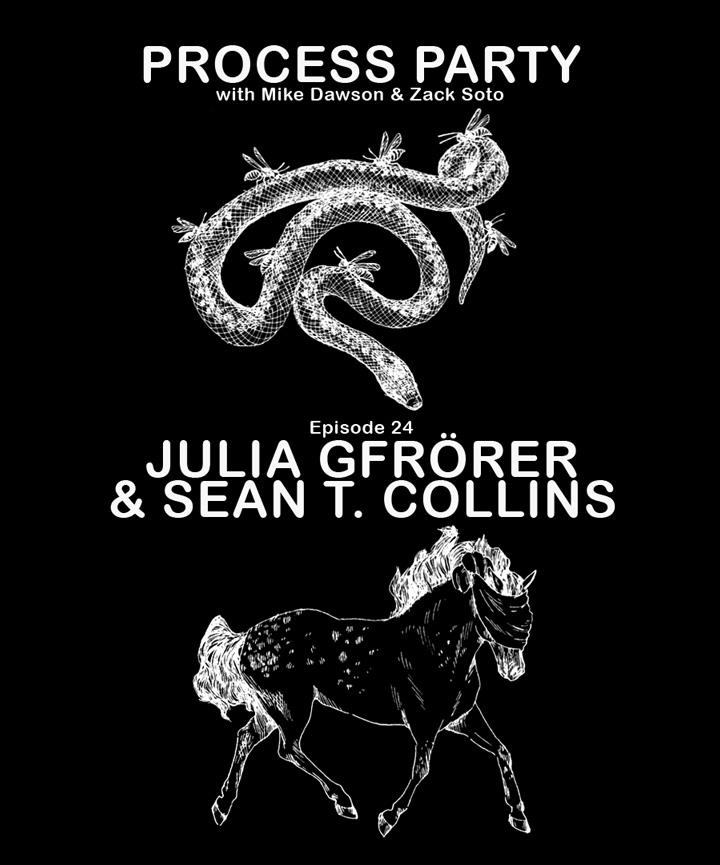
Julia Gfrörer, my partner and co-editor on the MIRROR MIRROR II anthology coming soon from 2dcloud, are the guests on this week’s episode of the Process Party podcast! Cartoonists and co-hosts Mike Dawson and Zack Soto go deep with us on the making of the book and our own contributions to it. At one point it gets really real out of nowhere! Please listen!
Meanwhile, with 12 days to go, the kickstarter for MIRROR MIRROR II and the rest of 2dcloud’s Spring 2017 collection is hovering at about the 45% mark. Please consider placing an order or making a donation. I’m proud of this book and I believe that if you enjoy what I do here, you’ll enjoy the book as well.
“Billions” thoughts, Season Two, Episode Five: “Currency”
March 20, 2017We open with Johnny Cash on the soundtrack, as Mike “Wags” Wagner, the most Billions character on Billions, pours his heart out to his liege lord Bobby Axelrod and getting screamed at in response. No, wait—a “48 HOURS EARLIER” chyron reveals that we’re opening, with Johnny Cash on the soundtrack, in South Korea, where some poor schmoe involved in the manufacture of some obviously faulty smartphone takes a header out his hotel window, cutting off the music and setting off a soft “thud” and the sounds of screeching cars and screaming pedestrians below. We cut to Mafee, one of Axe Captial’s mid-rung hedgebros, running headlong into Bobby’s office only to find him absent. We cut to where Bobby is: at a racetrack with his kid and Frenchy from Goodfellas, where he’s tring to get a line on the locale of an upstate New York casino that’s in the works until word about the smartphone debacle reaches him. And from there, it really is off to the races.
“Currency,” the fifth episode of Billions’ shockingly good second season, is as ruthlessly efficient a storytelling machine as its predecessors. There’s not a plot beat that doesn’t reveal character, and there’s not a character revelation that doesn’t advance the plot. Guest stars—from the aforementioned Mike “Frenchy” Starr, to Dennis Boutsikaris, Danny Strong, and Jerry O’Connell as recurring rival hedge fund gurus turned potential allies, to Ritchie Coster of True Detective Season Two doing a sort of Mayor Chessani redux as a gambling-industry hotshot, to Mad Men villain Allan “Lou Avery” Havey as the boss of Christopher Denham’s superlative rat-squad investigator Oliver Dake—shine. Leading players get some of their strongest moments, from Bobby ripping up Lara’s ambitions out of pique to Chuck admitting to Wendy that he’s always felt like she was out of his league—a confession she was utterly flummoxed to hear, which illustrates how strained their relationship really was. Jokes hit hard as well: cf. Bobby asking his hapless underling Mafee, who has a major tipoff but is afraid to divulge it, “Are you transmitting the details to me telepathically?”; Chuck asking his more competent subordinate Kate if she’s ever gone hunting and her replying “No—I’m black”; Chuck asking Go enthusiast Bryan Connerty if he takes a vow of celibacy to adhere to the game’s ancient roots and Bryan responding “No, that’s just the end result”; brash psychotherapist Dr. Gus barking at his boss Bobby to “Let me into that kitchen!”
All of this is in service to some of the tightest plotting on television.
Billions is so good right now. I reviewed last night’s super-taut episode for the New York Observer. Pay special attention to the structural sharp left turn it makes near the end of the episode — that’s damn strong writing.
“Legion” thoughts, Season One, Episode Six
March 20, 2017Yet for all its intelligent design, the episode still feels as stuck in limbo as its characters. At no point are we in any doubt as to the nature of the situation: The devil with the yellow eyes has used David’s telepathic brain to construct a mental prison for him and his friends. We know they’re not crazy. We know their therapist is really their captor. We know the asylum in which they’ve been stowed is a simulacrum of the one David escaped in the pilot. We even know some of the dialogue they’re speaking, since it’s a deliberate repeat from scenes in that first episode. The only mystery is how they’ll break free, and since there are two episodes to go, that they will break free is a given. So it doesn’t take long for the novelty to wear off — and for the same weightless unreality that a dimly cognizant Syd complains to Dr. Busker about to begin taking hold of the viewer as well. Given the momentum the show had built as David gained control of his powers and then had them violently seized by his nemesis, devoting a full episode to this sense of stasis is a real shame.
It could be worse, however, at least if the ways in which the show really cuts loose in this episode are any indication. In a gravely miscalculated musical interlude, the devil-Lenny cavorts around David’s memories in a leotard and fishnets to the tune of Nina Simone’s “Feeling Good.” The song’s recent fate as a weight-loss jingle was bad enough, but to see it reduced to the soundtrack for a psychic parasite’s bump-and-grind — occasionally shot in silhouette against monochromatic red, like a James Bond title sequence — is somehow even more dispiriting, doubly so given the showrunner Noah Hawley’s impeccable use of found music in his other FX vehicle, “Fargo.” Like the easy allegory of the entire asylum-limbo story line, it’s a case of infatuation with form impeding function.
I reviewed last week’s Legion for the New York Times. More on this show soon.
“The Path” thoughts, Season Two, Episode Nine: “Oz”
March 15, 2017Now we’re talkin’! “Oz,” this week’s episode of The Path, is named for L. Frank Baum’s book — its use of the fraudulent “man behind the curtain” serving as a neat metaphor for cult life according to the deprogrammer who has her sights set on poor pregnant Mary and her husband Sean. But there’s some real wizardry involved in this episode, and I’m not just talking about Eddie’s mystical visions and paranormal bleeding. In the space of an hour, Eddie accepts his commission as the the true Guardian of the Light, joins forces with old-school Meyerists Richard and Felicia, resumes his ascent up Doc Meyer’s Ladder, and announces his intention to depose Cal and take over the movement. His estranged wife Sarah blackmails her more wayward followers into coughing up enough cash to save the movement, then helps both herself and Cal shake off their pain, guilt, and failures by embracing one another, figuratively and literally. His investigation momentarily stymied by the Meyerists’ new cash infusion, Abe quickly uncovers the extortion that made it possible. And the divided loyalties of Sarah’s family members—father Hank, mother Gab, sister-in-law Nicole, and son Hawk—seem ready to pay dividends like never before. I dunno about the Garden, but for this show, we’re in a whole new world for sure.
I reviewed this week’s pretty darn good episode of The Path for Decider. As I explain in the review, a lot of the strong plot elements listed above would have packed a more powerful punch had the writing for this season been more consistent and concise, but still.
“The Americans” thoughts, Season Five, Episode Two: “Pests”
March 15, 2017When Philip and Elizabeth Jennings take a trip to the local Bennigan’s for a family dinner, they don’t come alone. Yes, they bring their fake adopted son, secretly a Vietnamese spy, and the family of their target, a Soviet defector who claims to be working for the Department of Agriculture but seems to be part of a bioweapons program. But they, or more accurately the filmmakers behind their show The Americans, also bring a lingering shot of the bustling salad bar…accompanied by the sound of people coughing and sneezing. You can’t see the culprits, but they’re there, somewhere, and their bodies are coating the food with filth.
I reviewed this week’s paranoiac episode of The Americans for the New York Observer. By the way, I have a crazy theory about where it’s all headed: Paige kills Stan.
“Billions” thoughts, Season Two, Episode Four: “The Oath”
March 15, 2017There’s this bit toward the end of Road House—the 1989 cult classic in which, and I promise I’m not kidding, Patrick Swayze and Sam Elliot play world-famous bouncers trying to defend a small town from Ben Gazzara, the ruthless owner of the local JC Penney—which requires the main character, Dalton, to go to the titular bar twice in quick succession. Director (again, I am in no way kidding) Rowdy Herrington sets up both scenes with prolonged shots of Swayze pulling up to the bar, parking his car in its dirt lot, getting out of the car, trotting up the stairs, and entering the establishment. Suffice it to say that this film is not some vérité experiment; it depicts the parking of a car twice in a row because it’s slovenly, not thoughtful. Don’t get me wrong, Road House is a marvelous time at the movies, but not because of what the Mystery Science Theater 3000 veterans at RiffTrax refer to as “ah yes, the famous Parking Scene.”
Friends, a whole of shows these days are stuck with Dalton in that goddamn parking lot. From infamous victims of Netflix Bloat like Jessica Jones and Luke Cage to prestige (or prestige-adjacent) projects like Taboo and The Path, just to name a few, too many series pad out their running times and flatten out their editing rhythms with meaningless transition shots. WATCH as Tom Hardy walks down an alley to look for someone who isn’t there? THRILL as Krysten Ritter and Mike Colter stroll through a semi-reasonably realistic version of New York! SWOON as Aaron Paul and Michelle Monaghan drive places while looking anxious! Again, we’re not talking about shows that artfully force us to confront the slow passage of time for some aesthetic or moral purpose, like The Americans—we’re just talking doughy, underbaked filmmaking.
Billions, I’m pleased to report, is not that kind of show. Not by a long shot. “The Oath,” its stellar second season’s fourth episode, is a strict machine, a marvel of efficiency, in which scenes are pared down to their bare essentials for both plot and character. The ep is helmed by Noah Emmerich, the great Stan Beeman on The Americans,—the latest in the season’s motley crew of distinctive directors, including The Handmaid’s Tale’s Reed Morano, indie-film team Anna Boden & Ryan Fleck, and, remarkably, Going Clear documentarian Alex Gibney last week. Remarkably, every one of them takes the same “all killer, no filler” approach.
Which is nuts, considering all the crazy shit being flung at the wall; if you hadn’t watched a moment of this season and just heard it described, you’d assume the show was floundering. How else to explain this episode’s cameos by The Americans’ Richard Thomas as a billionaire philanthropist with a Deadwood-level flair for articulate obscenities, Mad Men’s James “Not great, Bob!” Wolk as an Elon Musk-esque aerospace entrepreneur, and actual literal Mark Cuban as himself?
Yet another crackerjack episode of Billions this week; I reviewed it for the New York Observer, and got some digs in on my least favorite trend in TV in the process.
